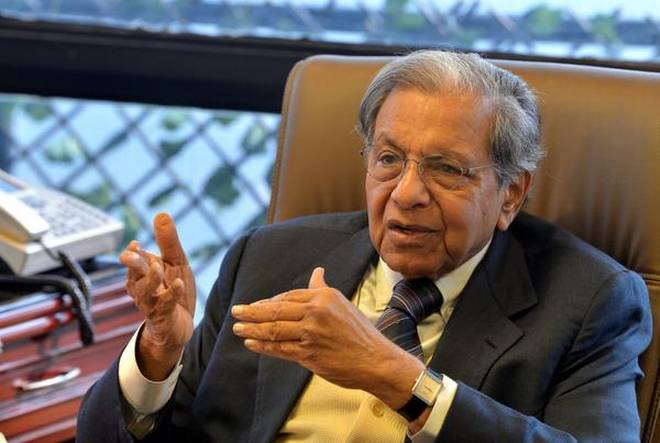
Spending, both by the Centre and the States, need to go up very significantly, it says
The Fifteenth Finance Commission has mooted a greater role for public-private partnerships to ramp up the health infrastructure and scale up public spending on health from 0.95% of GDP to 2.5% by 2024, its chairperson N.K. Singh said on Wednesday.
While public outlays should focus on primary health care at the panchayat and municipality level, private players should be relied on for specialty healthcare, he said, hinting that the Commission has recommended steps to fix the skewed availability of healthcare across India as poorer States have the worst facilities.
Mr. Singh recommended substantial improvements in the working conditions for doctors in government hospitals, many of whom are hired on a contract basis by States, and the creation of an Indian Medical Service cadre as envisaged in the Civil Services Act of 1951.
“The Finance Commission recommendations will turn out to be a shining example of public-private partnerships… We have sought to, in our report, address the multiple challenges and hopefully, there would be momentum in giving the health sector the priority that it certainly deserves,” he said at a session hosted by the Confederation of Indian Industry on resetting healthcare systems.
“The total spending of around 0.95% of GDP is not adequate both in relation to our peer groups, and in relation to the commitments under the National Healthy Policy of 2017. There is no doubt that public spending, both by the Centre and the States, need to go up very significantly. And the endeavour must be to raise public spending from 0.95% of GDP to 2.5% of GDP by 2024,” Mr. Singh said.
While India doesn’t have adequate health infrastructure, the picture is “exceedingly skewed” among States with the poorest States having the worst health infrastructure. “It’s somewhat unfortunate… So how does one address the skewed nature of the availability of health infrastructure among the States of India, particularly those which are most vulnerable,” he asked.
Seeking greater attention on the role of paramedics and frontline health workers in countering the pandemic, Mr. Singh said the Commission was amazed to learn that doctors in many States are engaged on a contract basis and underlined the need to improve their working conditions. He also suggested the constitution of an All India Medical Service as envisaged in the Civil Services Act of 1951, terming it as “quite amazing” that no action has been taken on this till date.
To achieve better healthcare parameters, public-private partnerships must be considered “in a holistic way” instead of the current situation where the government only turns to the private sector in times of emergency, Mr. Singh said.
“For that, a working relationship is needed and this relationship can be built only if, first and foremost, the trust deficit that exists [between industry and government] now is bridged. Private sector investment in health has an exceedingly important role to play,” he said.
“The government must do what it is expected to… it is duty-bound to address the issue of health deficiency at the level of municipal corporations and village panchayats. The primary health centres must be the central focus of public outlay, I think the private sector participation can be at other levels of speciality and at levels where they are better placed due to their innovative skills,” he said.





















